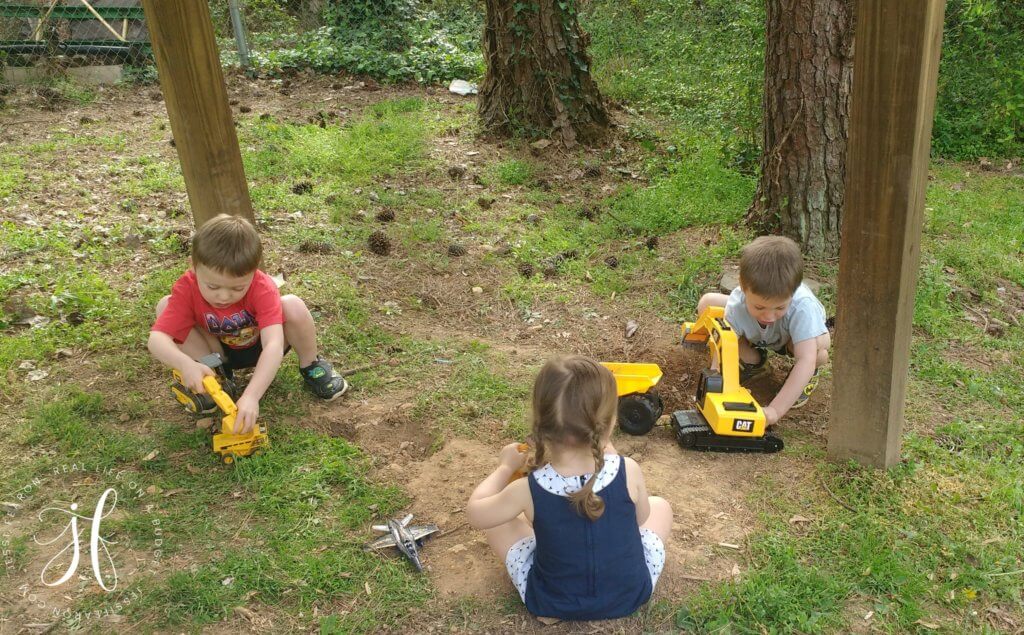So, yes, we had to touch our emergency fund. No, the reasons weren’t quite “emergency-ness” per se, but nonetheless, we pulled the money we needed from it.
If you own a home, you probably know all about Escrow accounts and property taxes, but for those that have never heard of either of these, I’m going to take a quick sec to debrief.

Escrow generally refers to money held by a third-party on behalf of transacting parties. But in the United States, it is best known in the context of real estate (specifically in mortgages where the mortgage company establishes an escrow account to pay property tax and insurance during the term of the mortgage). This is what our Escrow account is – the account where our property taxes and home insurance are paid from.
Now, with Escrow, this isn’t a “free” account. We had a friend that thought it was the bank paying his home insurance on his behalf with their money. No, that’s not how this account works.
Here’s a screenshot of our mortgage payment breakdown:

As you can see, if we only make the regular mortgage payment of $685.08 then $87.58 and $139.92 go into our Escrow account to pay for our home insurance premium and our property taxes.
The struggle though is ever since Woodstock, GA became one of the Top 50 Cities to Live in the U.S. back in 2015, our once rural city has started to explode.
That means, our property taxes have gone through the roof, and our home insurance premiums are going up as a result due to the increase in crimes being committed here.
And so, this past month we received the notice that our Escrow account was going to be short come June and that we could either pay the shortage or we could let it roll into our mortgage payment.

Well, the issue is that if we let it roll into our mortgage, our mortgage payment was going to go up by half of what it currently is.
Related Post: How to Save a $1,000 in a Month
Both my husband I didn’t like this idea since we’re both self-employed, and as you can see from the above screenshot, we have a cheap mortgage. This allows us to build our businesses without having to worry about chasing money just to afford our life.
Also, we’re still trying to pay off our home, which is a lot easier to do when your mortgage payment is low because then every little bit extra can, in fact, go towards the principle. We would not have this wiggle room in our budget if our mortgage payment were to go way up.
So, we decided to pay the shortage.
The problem, however, was that we just paid our taxes and so our other reserves of cash were depleted. Therefore, the money had to come from our emergency fund.
What it means to touch your EF
As I know you know by now, your Emergency Fund is intended to protect your family in times of an emergency. Your EF isn’t meant to purchase new furniture or to complete home renovation projects or even for a vacation.
It is meant to keep your family above water during times of crisis – like you or your spouse losing their job, a massive medical bill, or even unforeseen circumstance that pops up.
And yes, to me, this is a debt we owe to ourselves and therefore, we treat it as we would any other debt. We’re going to work our tails off to pay it back as quickly as possible.

A question a get asked often, is “should I use my emergency fund to fix my car?”
Well, that depends on the cost to repair your car. If it’s an amount that would leave with the only options to pull from your EF or put it on a credit card, then yes, pull the money from your EF. It’s a lot easier to save money than to pay off debt.
This is my rationale for whenever you’re in a tight spot – use your EF over financing.
Obviously, there isn’t a one-size-fits-all approach here. Only you and your family can decide how to use or when to use your emergency fund. But, here are a few questions to ask yourself before deciding to “borrow” from your EF:
- How much time do we have until we have to pay the expense?
- Could we reasonably save up the money to pay half (or all) of the expense in 30 -90 days?
- Is this expense worth taking the money from our peace of mind?
Let’s say the expense is buying a new couch for your living room after one of your kiddos broke it beyond repair. Of course, you like having something comfy to sit on (I mean, who doesn’t, right?) but if you waited a couple of money and stashed the money away, you could pay cash for the couch without having to touch your EF.
Related Post: How to Survive When Money is Tight
But let’s say the expense is a new transmission for your car. Sure, maybe in a couple of months you could save up the money to pay cash for the fix, but you need your car to get to work every day. Your only other option is to open up a line of credit with the auto center.
In this case, it makes a LOT of sense to touch your EF because the interest rate only on that line of credit will make paying that debt off difficult. It’s a lot easier (and you’re a lot more committed) to paying yourself back than to pay someone else back.
So you tell me, have you ever touched your emergency fund before? Share your experience below!
Other Posts You May Enjoy
The post When to use your Emergency Fund appeared first on Jessi Fearon.



